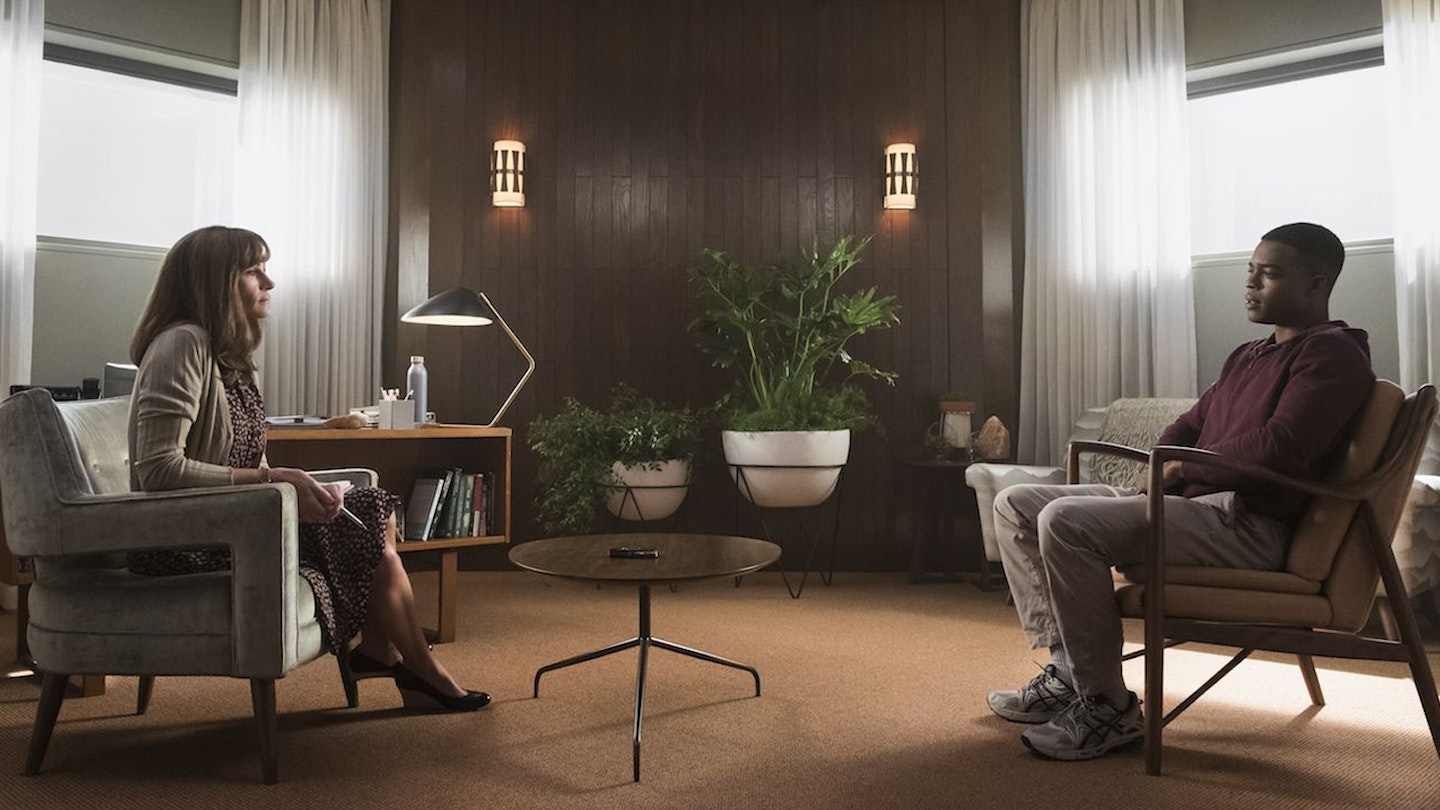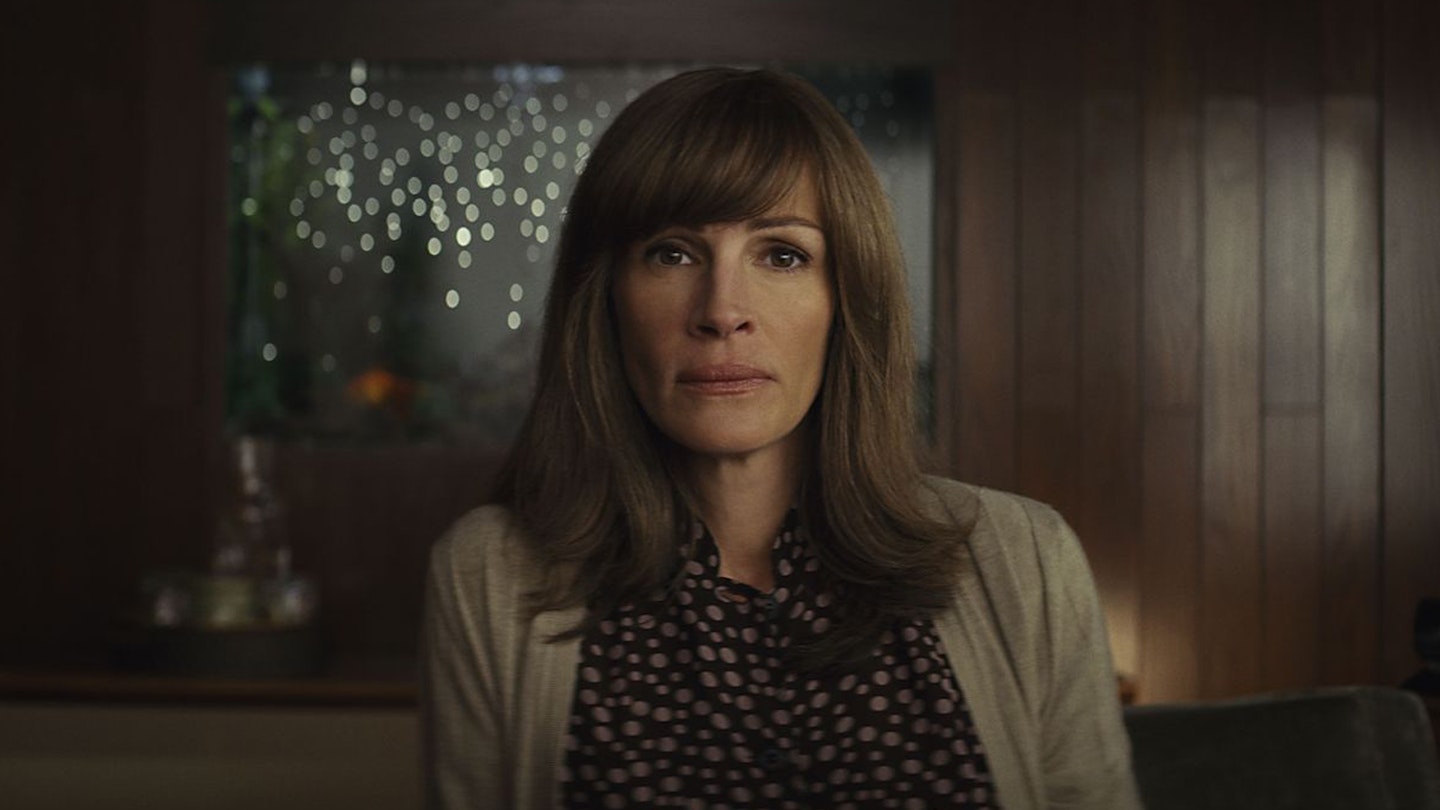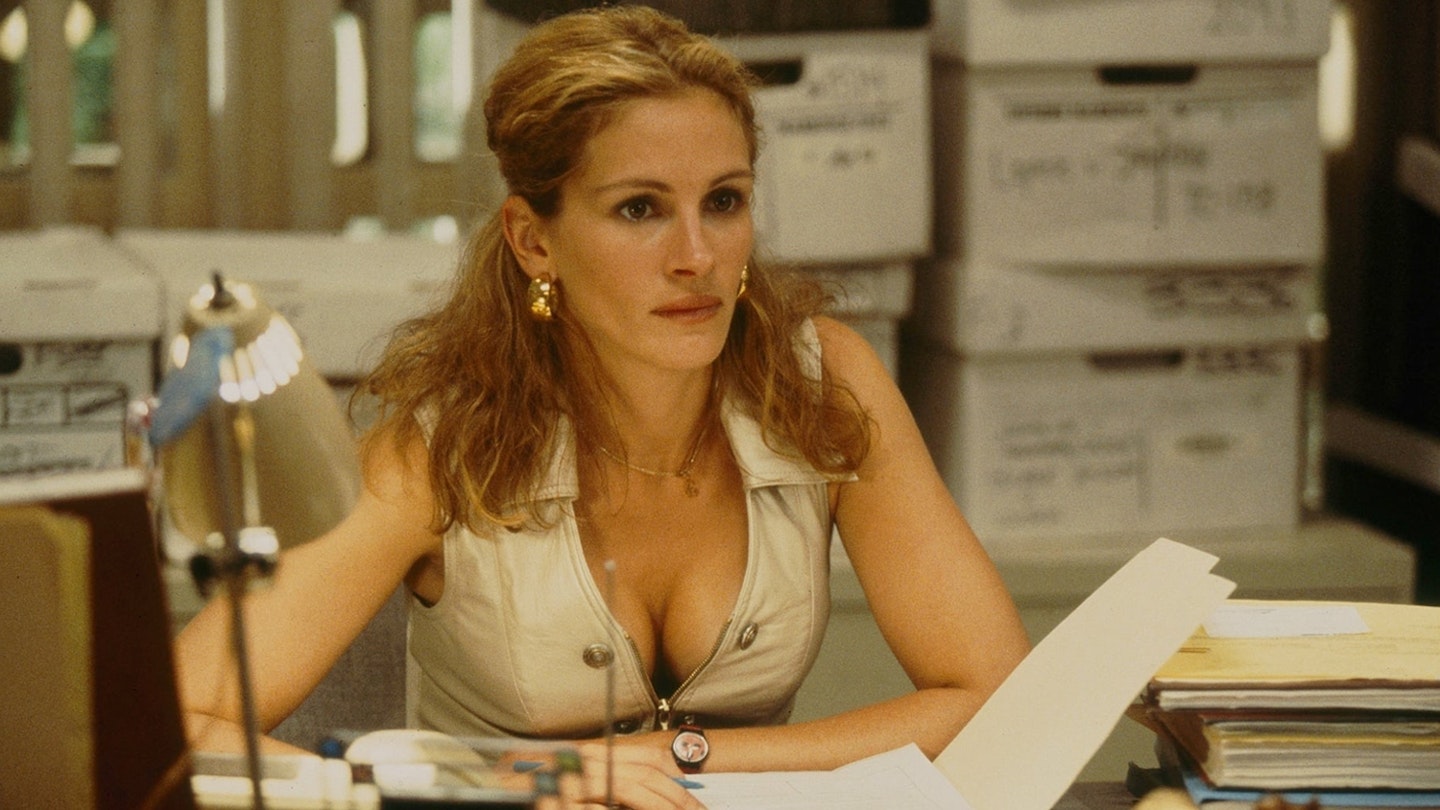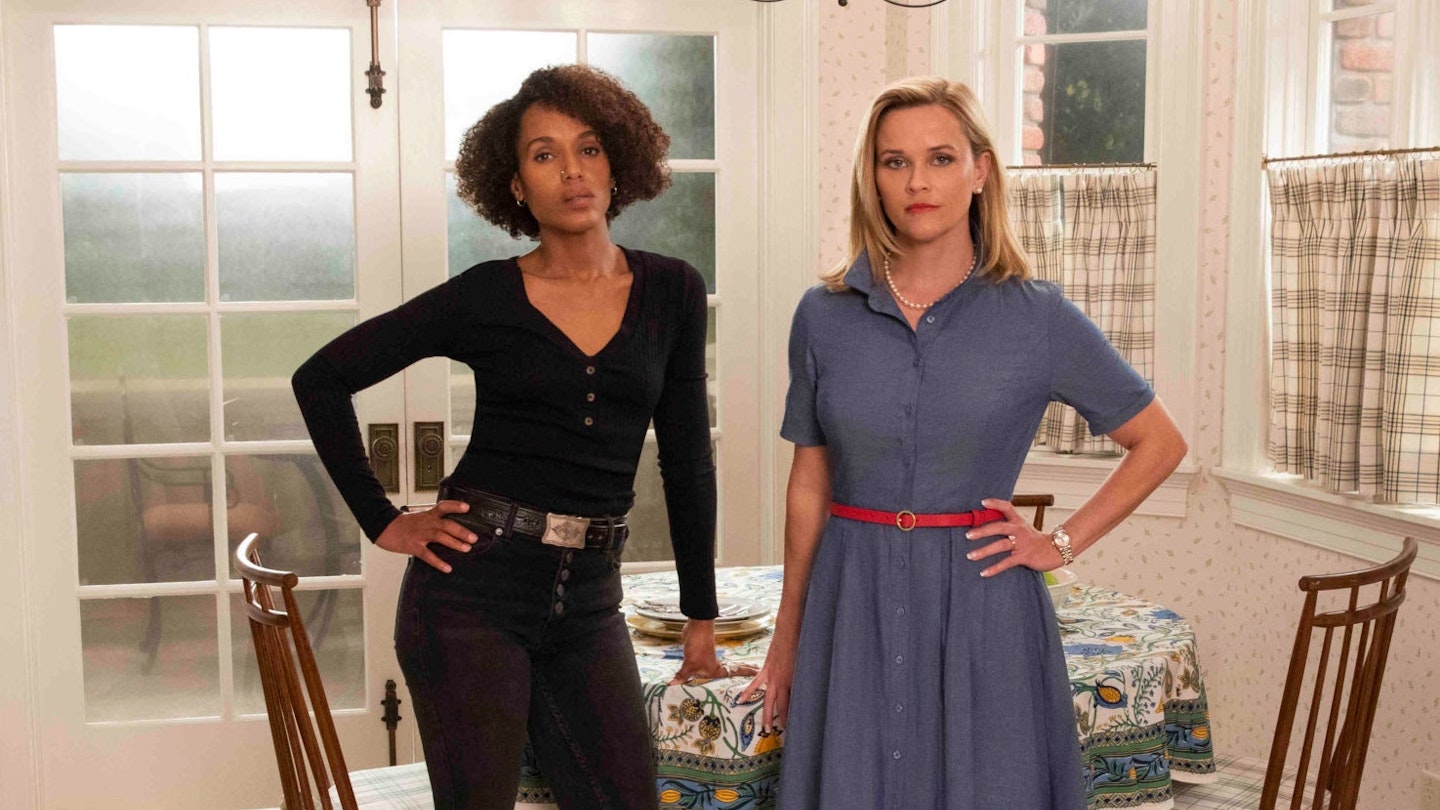Homecoming is not a show to watch with any other distractions. Put your phone away. Leave your chores for later. It demands complete attention. Not because the plot is hard to follow, but because so much of its storytelling is in the visuals. It doles out its story at a slow pace, yet the peculiar mood it creates is riveting.
Based on a podcast of the same name, Homecoming is split across two timelines. In the first, we venture into the definitely-not-what-it-seems Homecoming facility, which helps soldiers prepare for a return to civilian life after completing their service. Heidi Bachman (Julia Roberts) is a caseworker who interviews the soldiers to discuss their issues and monitor their progress. The facility is dingy and odd. One worker hosts a weirdly intense class on how to interview for a job in a shoe shop. Nobody ever goes outside. It doesn’t seem right. In the second timeline, four years in the future, Heidi is working in a diner. She is clearly long gone from Homecoming, but a government agent (Shea Whigham) brings her past back to her when he begins investigating why she left the company under strange circumstances and what was really going on inside those walls.

While the fact this is Roberts’ first lead in a TV show is the obvious big news here, this isn’t just a showcase for an A-lister. Hers is one of the quieter roles. Heidi is a dowdy, uncertain woman who gradually grows in forcefulness over the ten episodes. Roberts keeps her star wattage dimmed — there are no bursts of that famous laugh — and takes her place in a superb ensemble, which includes Bobby Cannavale as Homecoming’s obnoxious boss, Stephan James as a soldier Heidi becomes close to and Marianne Jean-Baptiste as that soldier’s mother.
Homecoming is a slow-burner that is worth the time.
Sam Esmail, who created Mr. Robot, has clearly carefully considered every single frame of the show. It is wildly stylish, but not precious about it. Most of the show is constructed of two-way conversations, which Esmail frames in skewed, disorientating ways, making the actors look small and vulnerable in big Kubrickian wide-shots or completely exposed in extreme close-up. There’s no softness or comfort to any of it. Paired with a Hitchcock-esque score, every minute makes you feel unsettled, as if at least one person is lying to you at all times, which they usually are.
Homecoming is a slow-burner that is worth the time. It needs a sedate pace to really make you feel the wrongness of the Homecoming facility, where every day is mundane but with an edge of nightmare. A second season is already confirmed. By the end of Season 1, it’s impossible to imagine exactly what else it could possibly reveal, but it’s easy to believe there are countless other secrets inside Homecoming’s cold walls.



